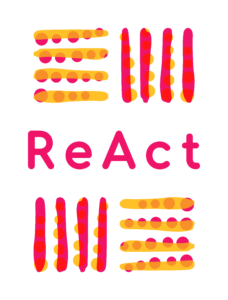How does Singaporean law regulate money lending?
The Singaporean government regulates money lending and there are no restrictions on who can apply for a loan.
However, the maximum loan that a migrant domestic worker (‘MDW’) can apply for depends on her monthly salary. If the MDW’s yearly salary is less than SG$10,000, the maximum she can borrow is SG$500.

Is there a maximum interest rate?
In Singapore, the maximum interest rate a money lender can charge is 4% per month. This means that if you borrow money and you fail to repay the loan on time, the maximum interest the money lender can charge you is 4% per month.
Sometimes, the money lender may want to charge the borrower with ‘late interest’. The money lender can only charge late interest on the amount that is late, not the total loan. For example:
If Aisha takes out a loan of $10,000 and fails to pay the first installment of SG$2,000, the money lender can charge late interest only on the late SG$2,000, not the remaining SG$8,000.
From 1 October 2015 onward, money lenders can only add additional charges as follows:
- If the borrower is late in repaying the loan, the money lender can only charge a maximum fee of SG$60 for each month of late repayment;
- When the money lender gives you the loan, they can charge you a fee up to a maximum of 10% of the amount borrowed; and
- The total amount of fees charged by a money lender cannot be more than the amount borrowed. For example, if Adam borrows SG$10,000, all the charges cannot be more than SG$10,000 per year.
Risks in engaging unlicensed money lenders
In Singapore, all money lenders need to get a license in order to do their business. However, it is important to be aware that even if the money lender is licensed, they might not follow the law. The Singapore Government has a list of all licensed money lenders, which you can use to check if the money lender you are dealing with is licensed.
There are many risks if you borrow money from an unlicensed money lender, for example, the money lender may:
- Use abusive language or threaten you;
- Ask you to give your passwords or social media details;
- Keep your passport or personal ID documents;
- Force you to sign a blank contract;
- Approve your loan without giving you a copy or explain all the terms of the loan;
- Give you a loan over the phone or WhatsApp; or
- Refuse to give you the loan.
If you deal with a money lender who does these things, you may wish to make a report to the Registry of Moneylenders. Make sure you keep a record of the money lender’s business name, license number and contact number.
How can I tell if a money lender is licensed or not?
From 1 November 2011, licensed money lenders are only allowed to advertise in 3 ways:
- Business or consumer directories (in print or online);
- On their own website; and
- Advertisements on the money lender’s business property.
Money lenders cannot advertise in any other way. If you receive a flyer, text message or email from a money lender, you can assume that the money lender is not safe to deal with because they have broken the advertising rules.
If you come across any advertisements, you can report it to the Registry at 1800-2255-529 or via Ministry of Law’s website.
What does it mean to be a guarantor?
A guarantor is someone who acts as a ‘back-up’ for someone who is taking out a loan (a borrower). The guarantor basically promises the money lender that they will repay the loan personally if the borrower does not pay.
If you are asked to be a guarantor for someone (such as a friend), you should take time to understand what your responsibilities are and what the consequences are.
For example, you must first understand if the borrower is likely able to pay back the loan. If the borrower cannot repay the loan, you will be held responsible for the loan.
If you agree to be a guarantor for someone, the money lender cannot ask you to give your Work Permit card or other personal documents (e.g. passport, ATM card)
What should I do after I have been given a loan?
If you have been granted loan, you should:
- Make sure that the money lender gives you the full amount of the loan – the money lender can only deduct up to 10% of the loan as the ‘approval fee’.
- Make sure you receive a receipt every time you make a repayment and check the information on the receipt to make sure it is correct (e.g. your name, the date, the amount paid back etc)
- Every January and July, the money lender should give a statement that will show the status of your loan and how much you have already re-paid and how much you have remaining.
- You should keep all receipts, letters and statements carefully as evidence of repayments, in case there are any problems or issues later.
Unfair Trade Practices
“Unfair trade practices” mean any practice that is deceitful or false to consumers. This could be a good or a service that does not match the first offer or advertisement.
Sometimes, money lenders may advertise that they will give out loans to MDWs at a certain interest rate. But, when an MDW goes to apply for a loan, the loan agreement has a higher amount of interest than the advertisement. The MDW may then be pressured to accept the loan.
Under the Consumer Protect (Fair Trading) Act 2003, excessive interest is considered to be an ‘unfair trade practice’. You may be able to take action against the money lender. However, you should seek advice from a lawyer or NGO first on the strength of your claim.
Helpful Tips
- Call the police (999) if you are in danger.
- Consider reporting the money lender if they are unlicensed or having bad practices. You may wish to submit a complaint to the Registry of Moneylenders by calling 1800-2255-529
- Consider filing a claim in court against the money lender if they have used unfair practices towards you. It is highly advised that you seek legal help from a lawyer or NGO first if you wish to do this.
- If you are having money troubles and are thinking of taking a loan, you may wish to speak to someone at one of the organizations listed in the resources section.


